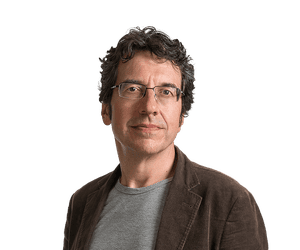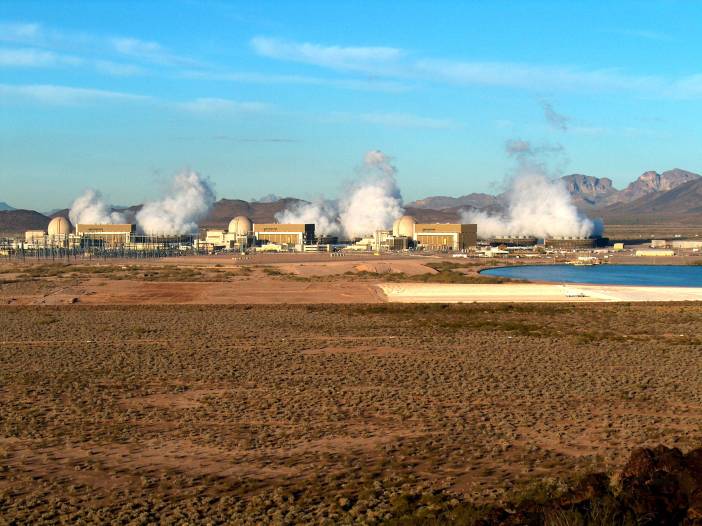Since the 1930s, various peaceful applications of nuclear
technology have helped countries achieve their development priorities.
This year's IAEA Scientific Forum -
Nuclear Technology for the Sustainable Development Goals – will
bring together experts and scientists on 28 and 29 September to
showcase how nuclear techniques are used to improve human and animal
health, boost prosperity and protect the planet.
This article summarizes the sessions, which will also be livestreamed on iaea.org. For the full programme, see the
Scientific Forum page. Watch
our videos on nuclear science for sustainable development.
Opening Session
IAEA Director General Yukiya Amano will open the event. After his
remarks, political leaders, decision makers and leading scientists will
share their views on how nuclear science and technology can help the
global community achieve the sustainable development agenda by 2030.
Keynote speakers include:
- His Serene Highness Prince Albert II of Monaco
- Andrew Wheatley, Minister of Science, Energy and Technology, Jamaica
- Abdeladim Lhafi, High Commissioner for Water and Forests and the
Fight against Desertification and Commissioner General of COP 22,
Morocco
- Yiren Wang, Vice Chairman, China Atomic Energy Authority
- Alan Finkel, Chief Scientist, Australia
Session 1: Health and Well-being: Global Access to Radiation Medicine
Battling non-communicable diseases (NCDs) is one of the major health
challenges of our time. NCDs such as cancer and cardiovascular diseases
claim 38 million lives per year, accounting for 63 per cent of all
deaths worldwide, most of which occur in developing countries.
Cardiovascular diseases alone cause 17.3 million deaths per year, a
number that is expected to grow to more than 23.6 million by 2030.
Participants in this session will discuss how radiation medicine can
contribute to achieving the ambitious target under the Sustainable
Development Goals (SDGs) to reduce deaths from NCDs by a third by 2030.
Discussions will start off with an overview of the key findings from the
Lancet Oncology Commission Report on how to expand global access to
radiotherapy and give a concrete example from Zimbabwe – a country where
only two radiotherapy facilities serve a population of over 13 million.
The session will also explore the potential of nuclear medicine for
treating cardiovascular diseases, and look at what is needed to increase
sustainable access to crucial medical equipment and services.
Session 2: Zero Hunger: Atoms for Food, Agriculture and Nutrition
The United Nations Development Programme reports that over the past
20 years the number of undernourished people has dropped by almost half
thanks to rapid economic growth and increased agricultural productivity.
However, still a lot needs to be done to achieve zero hunger by 2030.
Enhancing food security, improving nutrition and tackling agricultural
challenges related to, for example, climate change and harmful pests,
are pivotal to ending hunger, eradicating poverty and achieving many of
the 17 SDGs.
The afternoon session will illustrate the numerous ways nuclear
techniques can boost food security. We will first hear from the Food and
Agriculture Organization of the United Nations on the challenge of
ending hunger by 2030. Following this presentation, four world-renowned
experts from three different continents will give concrete examples of
how nuclear techniques have made a difference in their countries, for
instance by improving rice varieties in Bangladesh and
cattle health in Botswana, making food safer in Argentina and enhancing diet quality in Thailand.
Session 3: Energy for the Future: The Role of Nuclear Power
Energy drives economies, creates jobs and boosts prosperity, but its
production is also the main contributor to climate change, accounting
for around two thirds of global greenhouse gas emissions. Addressing
energy poverty and growing energy needs, while mitigating climate change
is no easy task.
Nuclear power, one of the lowest-carbon technologies available to
generate electricity, can be part of the solution – this will be the
theme of the morning debate on the second day of the Forum.
World-renowned experts will discuss how innovation, technology and smart
financial models could address common concerns related to nuclear
power, such as safety, cost and waste. Panellists will discuss how
expanding nuclear energy could contribute to mitigating climate change,
ensuring access to clean and affordable energy, and boosting industrial
output at the same time.
Session 4: Isotopes for the Environment: Managing our Natural Resources
Protecting our natural resources is a must. Over 3 billion people
depend on marine biodiversity for their livelihoods and 2.6 billion
depend directly on agriculture.
This session will begin with a presentation about environmental
challenges in Fiji – a country of more than 300 islands. We will then
hear from an Australian expert on how his country has addressed similar
problems with nuclear techniques. Moving from oceans to other water
resources, the following presentation will provide an overview of how
radiation technology is used to treat industrial wastewater in India. We
will then learn how Sudan uses nuclear techniques to determine when and
how much water is required for each crop to maximize yields and improve
water use efficiency, and how this knowledge has
empowered women farmers in eastern Sudan to step out of poverty.
Session 5: Partnerships for Progress: Transferring Nuclear Science and Technology
Building partnerships and capacity, sharing knowledge and
transferring science and technology will be crucial in achieving
development in a sustainable manner. The speakers in this session will
share their experiences and give advice on how to ensure the long-term
transfer of the multiple benefits of the peaceful uses of nuclear
science and technology between continents, countries, sectors and
organizations.
Interested in finding out more? Join us on 28-29 September 2016 at the IAEA headquarters in Vienna or watch the Forum online!

















